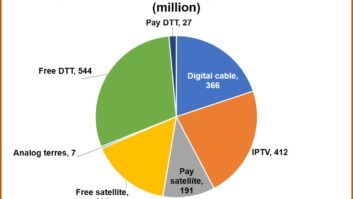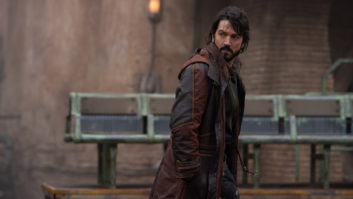
In an interview with The Observer, Ed Miliband promised that a Labour government would make TV debates between party leaders compulsory. Conservative Party David Cameron has recently stepped aside from a planned televised debate with Miliband ahead of the May elections. Instead, Cameron has said he will appear in one debate, alongside seven other party leaders before the end of this month.
Speaking to The Observer, Miliband commented: “In recent days the British public has been treated to the unedifying and tawdry spectacle of a prime minister seeking to duck out of the TV debates he once claimed to support with great enthusiasm. Yesterday the broadcasters made it clear they would not be cowed by his tactics but it is wrong for them and the British public to have governing parties use this kind of pressure in campaign periods. It is time to ensure, once and for all, that these debates belong to the people not the prime minister of the day.”
Miliband proposed that the body that negotiates the terms of the debates, Broadcasters’ Liaison Group, should become a statutory trust, which would be responsible for determining the format, dates of the debates and the attendees. A Labour government would set a deadline of 2017 for changes to be put in place.
Broadcasters the BBC, ITV, Channel 4, want one debate between leaders Cameron and Miliband, and two which will also include the leaders of the Lib Dems, Green Party, UKIP, the SNP and Plaid Cymru. Despite Cameron’s refusal to take part in the head-to-head, the broadcasters are sticking with their plans. In a speech to the Scottish Labour conference, the party leader said the Prime Minister was “running scared” after only agreeing to appear in one of three of the debates.
In a joint statement last week the four broadcasters said: “The broadcasters would like the Prime Minister to reconsider taking part in all of these debates. 22 million people watched the leaders’ debates in 2010 and there is a public desire and expectation for them to happen again in 2015.
The broadcasters proposals have come after extensive work over the last six months to ensure the public have the opportunity to watch televised election debates once more. The group have worked in an independent, impartial manner, treating invited parties on an equitable basis. They have listened to the views expressed by all parties and adapted the proposals to take into account electoral support.
The broadcasters will continue to work closely with all parties invited to take part in the televised debates to bring them to their millions of viewers across the UK. The heads of news of all four broadcasters would welcome the opportunity to meet Mr Cameron, or his representatives, to discuss the debates.







